INTERLINGUA

ISSUE SIXTHE SPANISH AND LATIN AMERICAN ISSUE




Welcome to the sixth edition of the University College School Modern Languages journal, Interlingua.

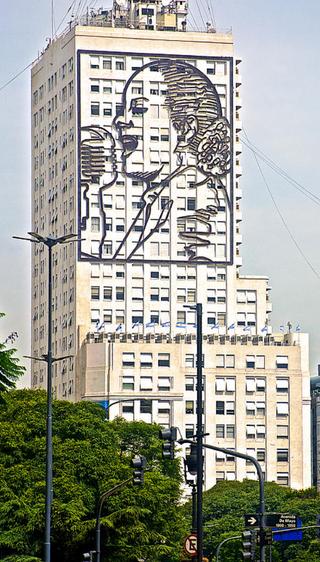
In this issue we are celebrating all things Spanish and Latin American, in recognition of the fact that our Spanish Department is both growing and sustaining its vitality, and inspiring pupils - both past and present - to engage in an appreciation of Spanish and Hispanic language and culture.

We like to think that studying Spanish will open many doors to our students, far beyond the walls of the Bentham block. With over 512 million native speakers and 20 countries in which it is the primary language, Spanish is the second most spoken language in the world. The emerging economies in the Americas mean that chance of work opportunities are growing and bilingual speakers are highly sought after with global companies keen to tap into the booming markets of Mexico and Argentina, to name just a few.
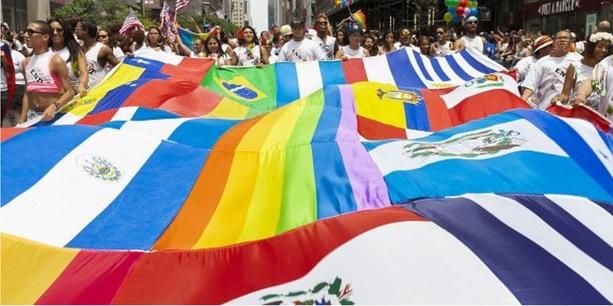
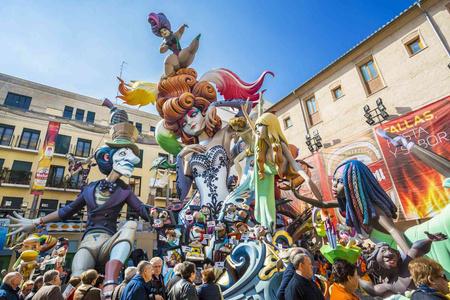
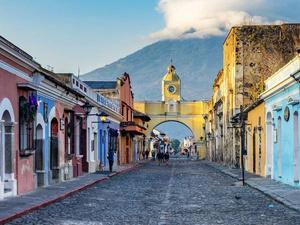

Studying Spanish offers far more than just business opportunities. Latin America and Spain are hosts to some of the most rich and vibrant cultures in the world, and we hope that this issue will give you a taste of the diversity of the Spanish speaking world. This term, Spanish students enjoyed a visit to the Frida Kahlo and Diego Rivera immersive exhibition, film evenings, a spoken word competition, poetry workshops, salsa taster sessions and much more. Further afield, the Modern Languages department has welcomed back trips abroad with open arms with successful visits to Valencia, Palermo and Berlin.
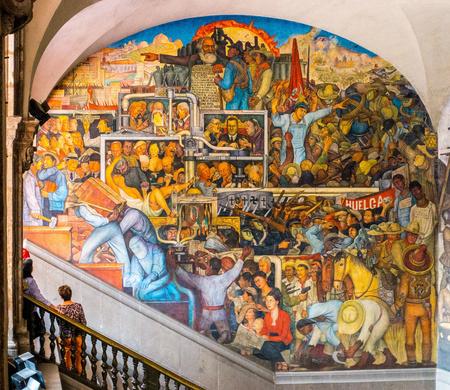
The issue begins with an article from Alex, an Old Gower and now student of Spanish and Portuguese at Oxford, who talks us through his Independent Research Project on the Mexican film Roma. We also hear from Spanish graduate Kiki about her fascinating career as Assistant Private to the Foreign Secretary and her adventures in Latin America.
Special thanks go to Maruf for his piece on the newly inaugurated Modern Languages Society, and to Tanya for sharing her research on the role linguists play in the world of AI which was published in the Chartered Institute of Linguists
iFeliz lectura! Miss Tyson
Alexander Evers is an Old Gower who has just gone up to Trinity College, Oxford to study Spanish and Portuguese In an article first published in the Bulletin of Advanced Spanish, Alex talks us through his choice of IRP (A-level Independent Research Project) which focused on the 2018 film Roma, directed by Alfonso Cuarón
The Independent Research Project, or IRP for short, is an exciting opportunity for Year 13 (schoolleaving) students such as myself to further their interests in Hispanic culture and develop independent research skills – something that I found hugely rewarding.
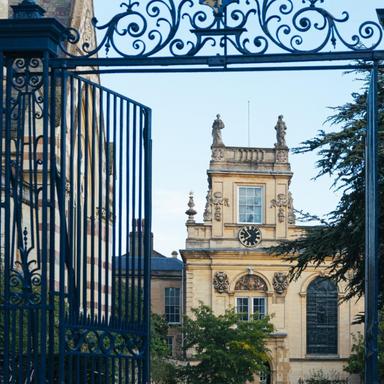
Early on in the research process I decided that I wanted to explore an aspect of Latin American culture, as this had been my primary focus in my Oxford application which I was working on in tandem with my IRP Soon after, I decided that researching a film would be of most interest, as I had already enjoyed studying Pedro Almodóvar’s Volver as part of my A-level course, and wanted to develop the film analysis skills that I had picked up in class.
After watching a few films, I was immediately captivated by Alfonso Cuarón’s semiautobiographical 2018 Netflix film Roma, and began to explore it in greater depth.
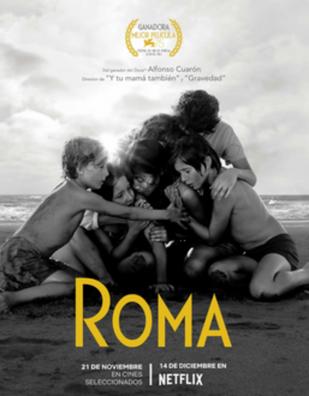
Before choosing an exact title for my project I found it useful to read online articles and film reviews in order to better grasp Roma’s key concepts and themes, so that I could then choose a balanced and well evidenced question that I also found interesting.
The most striking element of the film for me was Cuarón’s social commentary on 1970s Mexico, which led me to settle on the final question: ‘To what extent can it be considered that Roma accurately portrays social inequality in Mexican society?’
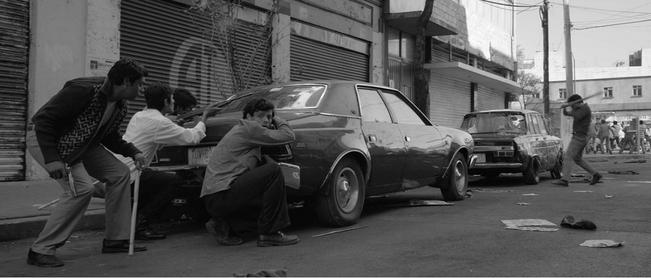
There was a vast amount of information online about this facet of the film, with some praising Cuarón’s exploration of the class divide in Mexico, while others felt that he had looked at it through a ‘white saviour’ lens, and did not do the Mexican indigenous community justice. For this reason, I wanted to delve deeper into the two opposing arguments and draw my own conclusions.
In the end, I concluded that Cuarón sensitively and accurately depicted the class divide in Mexico in the 1970s, and offered a bold political statement about the Mexican government at the time – the most eye-opening moment for me being his detailed portrayal of the 1971 Corpus Christi Massacre – a clear act of unjust political suppression that Cuarón highlights in this film that many of the audience, including myself, had not heard of before.
However, Cuarón’s portrayal of the indigenous community struck me as underdeveloped in places. Although the film centred around an indigenous woman named Cleo, it featured relatively little dialogue from indigenous characters, which unfortunately meant that their role in the film was lessened, as their opinions regarding the social climate of 1970s Mexico were not particularly addressed.
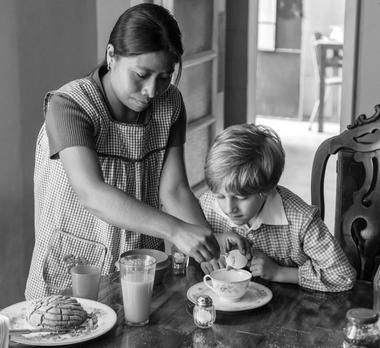
The next step was preparing a spoken presentation for the examiner to last no longer than 2 minutes. This was a harder task than expected, as this 2-minute presentation formed the basis for 10 minutes of spontaneous questions from the examiner Therefore I had to include enough information about my chosen question, without making it too broad. After this was completed, it was essential to memorise the presentation. I would highly recommend doing this early on in the process, as the pressure of the exam environment can make it harder to remember the presentation, so knowing it by heart is a huge help.
The next step was preparing a spoken presentation for the examiner to last no longer than 2 minutes. This was a harder task than expected, as this 2-minute presentation formed the basis for 10 minutes of spontaneous questions from the examiner Therefore I had to include enough information about my chosen question, without making it too broad. After this was completed, it was essential to memorise the presentation. I would highly recommend doing this early on in the process, as the pressure of the exam environment can make it harder to remember the presentation, so knowing it by heart is a huge help.
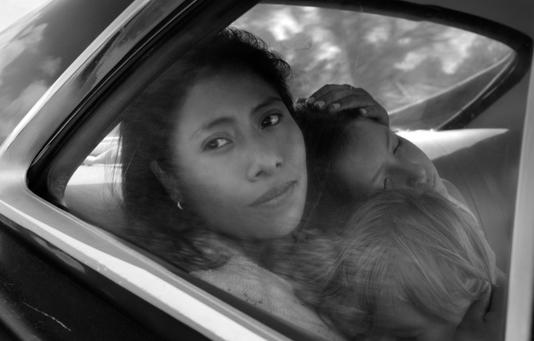
The experience of the speaking exam was in some ways very different to any other A-level exam due to the fast-paced and spontaneous nature of the questions. Despite this, it was possible to prepare for many of the questions, as while the wording was not the same as the ones I had planned for, the themes that they dealt with were similar. This allowed me to draw upon knowledge from answers that I had previously planned, and made the exam less intimidating than I had expected.
Another challenge of the speaking exam is using enough high-register language and complex grammatical structures, as these are essential for reaching the top marks, yet are often tricky to think of on the spot. What I found particularly helpful was prepreparing a set of transferable phrases about the film that I would likely be able to use in the exam without too much effort, as I was confident knowing when and where it would be appropriate to use these structures as a result of trial and error from speaking practice
On reflection, the IRP is an element of the A-level course that I am very grateful for –the research skills and additional knowledge that I gained were invaluable, and are some of the many benefits of choosing to study languages at A level!
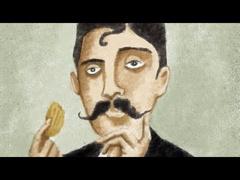

At the start of school year 2022, the Modern Language Department welcomed Maud Fournier, our new French Teacher & Language Assistant from the French Alps We took the opportunity to ask her some questions to find out more about her!

What makes you happy?
Learning something new Travelling abroad
Spending time with loved ones Running and hiking in nature Listening to my favourite songs on Spotify Skiing in the Alps
What’s your greatest talent?
I can play the guitar and sing… in English !
And a weakness?
I am very clumsy and always feel like I'm accident prone. But hey, I managed to get my driving licence at the first attempt. See… anything is possible!
I am a big fan of Banksy, the anonymous street artist from Bristol. His artwork is visually pleasing and conveys a very powerful message. I admire the fact that he is against the idea of selling his artwork despite his reputation. My favourite art piece is the one he designed during the pandemic titled Nurse as a Superhero. I also like the unexpected self-destruction of his 2006 painting of Girl With Balloon after it was sold at an auction.
What do you value most in your friends?
Authenticity-I believe one of the most important parts of a relationship is to be yourself. A good sense of humour is also an attractive trait.
Your motto for life?
I am the master of my fate; I am the captain of my soul – N. Mandela

What’s your WhatsApp status? Hi, I'm using WhatsApp!
What talent would you like to have? Oh, I wish I could dance!
I will get angry when someone lies or does something disrespectful. Most of all, racism is something that gets under my skin.
Your favourite book?
I love novels based on facts. I would recommend The Diary of Anne Frank. It is a powerful story of a Jewish girl living in Nazi occupied Holland. For those interested in detective stories Entre Deux Mondes (‘Between Two Worlds’) by French author Olivier Norek is a good read. It tells the story of a Syrian man who is looking for his family in the hectic refugee camp in Calais. Now, for romantic people like me, I would recommend The Notebook by Nicholas Sparks.
The ring I wear every day is probably the most valuable object I own; it belonged to my grandmother. It was a gift from my grandfather whom I never met. What is your greatest fear in life?
I have an irrational fear of spiders… they are horrendous!
If you were not a teacher, what profession would you have? This is a hard one to answer because I am living my dream.
Your favourite dish?
Cheese of course! It is probably what I am going to miss the most about France!
At the start of school year 2022, the Modern Language Department welcomed Sergio Cuartero Simarro, our new Spanish Teacher from La Mancha- like El Quijote-. We took the opportunity to ask him some questions to find out more about him!
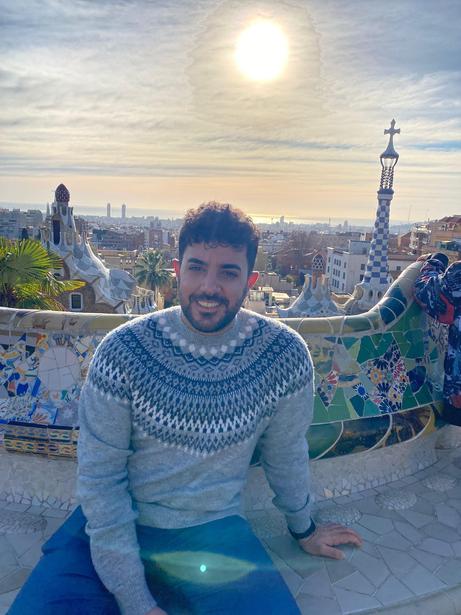
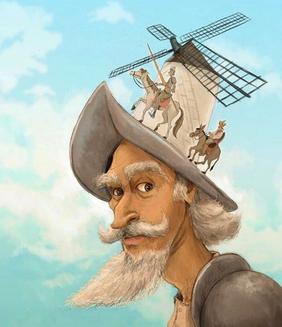
What is your main personality trait?
I would say empathy. Siempre trato de ponerme en los zapatos del otro (I always try to put myself in other's shoes). Feeling joy for others’ successes and offering help are attributes that define me as a person.
What do you look for in a friend? Honesty and willingness to let me be myself I would say.
What is your happy place?
I don’t have just one happy place. I would definitely define my happy places as those where my fondest memories are. These memories are also linked to special people


At the moment, Eloy Moreno. He is a Spanish novelist who writes stories about day to day life, with real characters, normal situations, and feelings. I also read Carlos Ruiz Zafón’s novels.

My favourite artist is called Nil Moliner He is a Spanish singer from Barcelona. He was 15 when he started to upload cover songs to YouTube. His mantra is "follow your dreams" and he makes it visible through the lyrics of his songs. “Mi Religión” is the one I like the most.

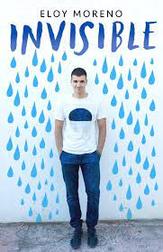
Which historical figure do you admire the most? Why?

Clara Campoamor, no doubt! She is considered to be the mother of the Spanish feminist movement.
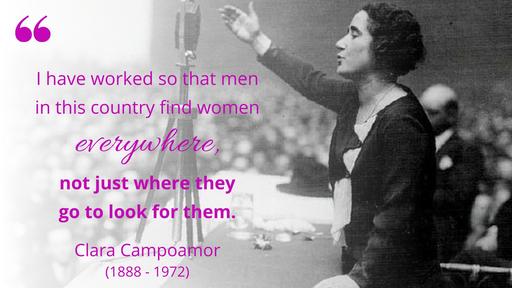
What is your most treasured possession?
At this moment of my life, family and friends.
If you were to die and come back as a person or a thing, what would it be? A hummingbird. Did you know hummingbirds are the symbol of freedom? Its flight represents resilience and adaptability.
What is your motto? “Never let the fear of striking out keep you from playing the game” - Babe Ruth

What’s your Whatsapp status?
All people smile in the same language.

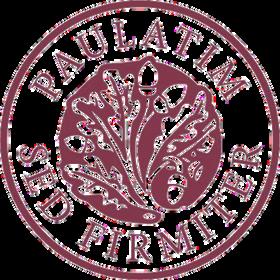
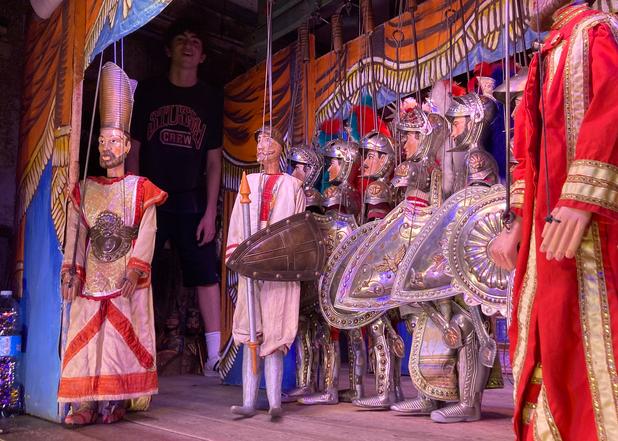

Ciao! Siamo appena andati a Palermo con la scuola and this is how it went! The trip started as it was meant to go on with a stunning guided tour of Palermo from a local guide who showed us the iconic Teatro Massimo which famously hosted scenes from the Godfather which being my favourite film, was incredible. The whole city seems to revolve around this beautiful opera house which is in the centre of the old town and is the third biggest in Europe. We were then shown some beautiful churches before seeing La Cattedrale which is one of the staples of Palermo (era bellissima!). Everyone then went back to their homes with their Sicilian families exhausted but feeling very Italian. The next day we were taken on a trip to Cefalù, a small fishing town with pristine beaches and a wonderful Basilica. On Monday, we had our first day at the International House Language School of Palermo from 9 o’clock till 2. The school was a lot of fun and it 'sky-rocketed' our Italian learning thanks to our tutors Carlo and Chiara.
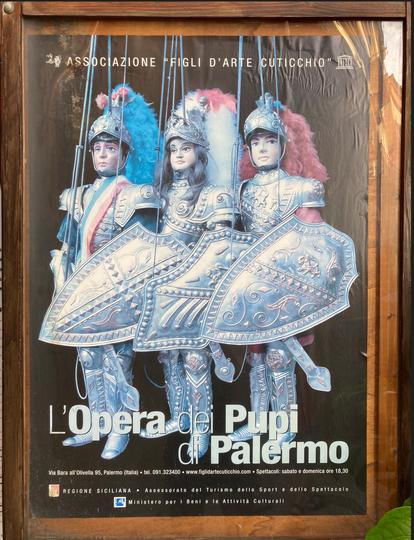
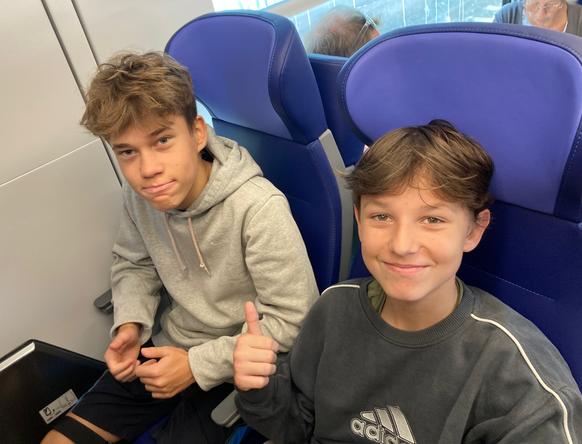
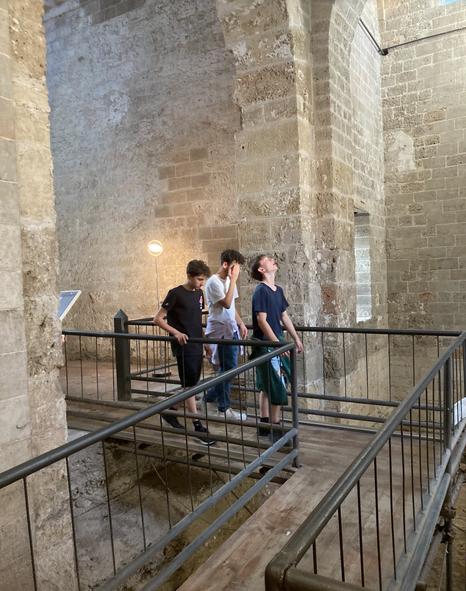
For the next four days we attended school in the mornings and we would go on trips in the afternoon. We loved going to la chiesa di San Giovanni, an incredibly picturesque church, or visiting il Teatro dei Pupi (the Theatre of Puppets) which we had learnt about in school before the trip. There are around five Sicilian families who carry the tradition of puppetry and tell heroic stories of France and Italy with marionettes on a beautiful stage. But the most memorable trip had to be the street food tour where we tried Panelle, Crocchete and most interestingly i panini di Milza (spleen sarnies) and we learnt that Sicily, being a ‘cultural melting pot’, used to have many religions and so the Jews and Muslims would eat all they could of the pig and then, as per their religion, they could not eat the spleen or lungs so it was given to the Christians as food would not be wasted.

And so, on the streets of Palermo you can buy cheap panini di milza which are very nice - just don’t ask what’s in them! I think it's fair to say that everyone loved the Palermo trip for many reasons, the obnoxious amount of ice cream, the beautiful architecture, the weather, but shining through was the fact that everyone got on so well and it was just like going on holiday with your mates while picking up a bit of Italian! We are so grateful that it could have happened and thankful to Miss Bandera, Miss Orsi and Mr Timpson for coming with us!
The experience in Donella’s house in Palermo was lovely. She was kind and cooked us traditional Italian food that was delicious, such as arancini and various pastas We had a great time and we are very appreciative of her hospitality.

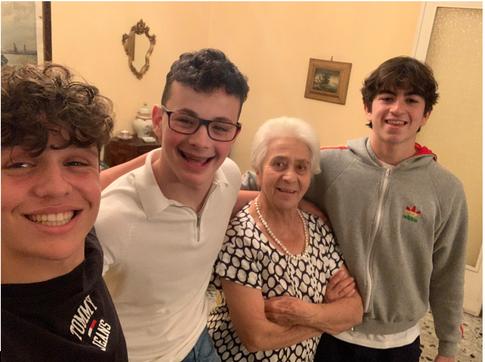
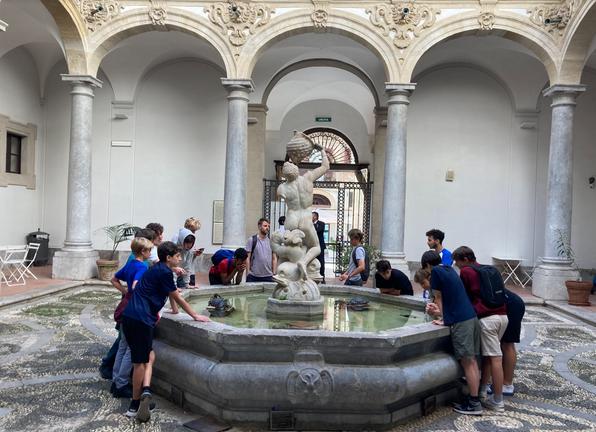
Our five day trip to Berlin was an absolutely incredible experience, from the museums to the tours to the hostel antics, covering the immense range of experiences Berlin has to offer, relevant to both German and Maths
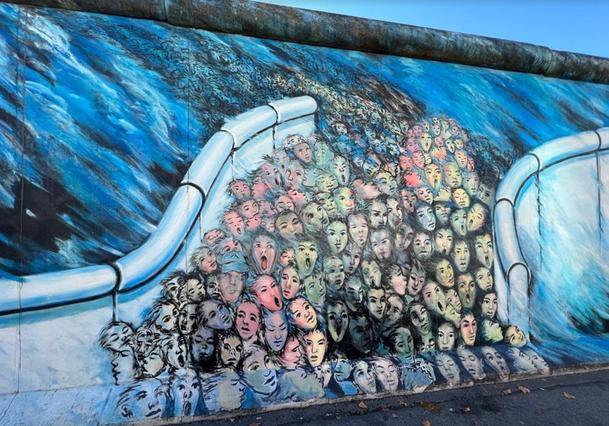
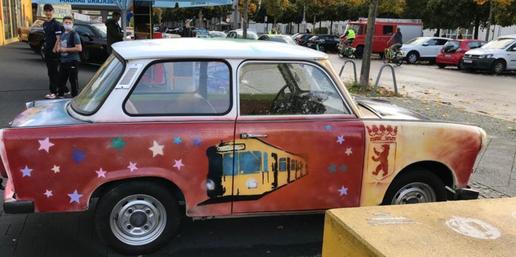
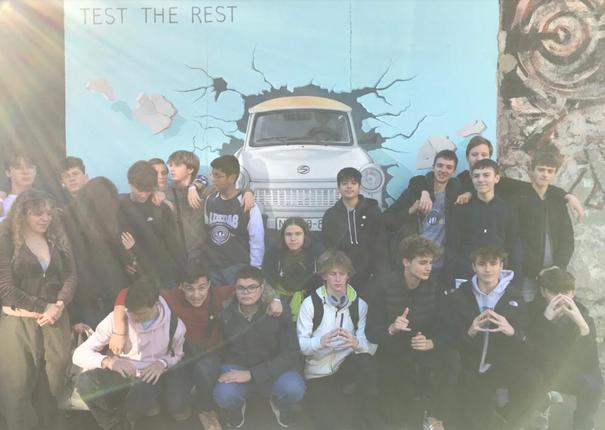
Our first day started with a guided tour of Berlin: we saw the Reichstag (and heard some nostalgic echoes of GCSE History in what the tour guide had to say!) the Holocaust Memorial and an endearing display of the East German Trabants, the one available car model in the GDR for which families would wait up to 12 years. At the request of Mrs. Hess, the tour guide would speak first in German, and then one of us would have to translate it for the group, a telling exercise that revealed our less than firm grasp of German numbers. The tour finished at Checkpoint Charlie, where I have now discovered the iconic “You are leaving the American Sector” sign still stands, albeit right next to the local KFC, a profound insight into the degree to which Berlin has changed in a short 40 years The cherry on top came the following day, on a walking tour of the utterly stunning artwork on what remains of the Berlin Wall.

We also had many opportunities to see Applied Maths throughout Berlin, we visited the Museums of Communication and German Technology, as well as the ZeissGrossplanetarium (Great Planetarium), where it turned out the show was entirely in German; as a German A-Level student I was amazed at the degree to which I was able to follow the talk, with due thanks to Physics class for having given me a significant leg up on what to expect. The highlight of this side of the trip, however, was seeing the BMW Factory on our final day, a location so exclusive we weren’t permitted to take photographs in the factory itself! Our immensely enthusiastic tour guide took every opportunity to explain both the functionality of the machinery around us and on a wider scale how the company operated between its many factories across the world, providing food for thought for both future engineers and economists within our group.
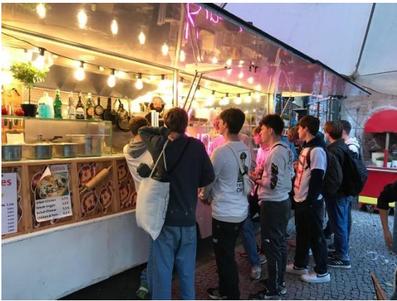



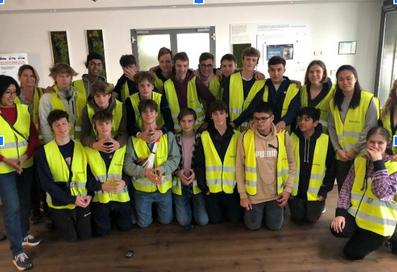
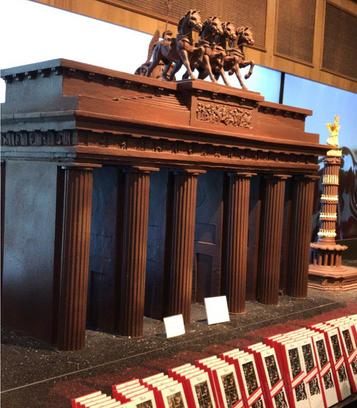

As well as our carefully scheduled travels, it would be remiss not to mention the joys of our free time in Berlin. We enjoyed the iconic Berlin Currywurst at every opportunity, and set out on a quest to find Mr. Underwood’s favourite German soft drink – Spezi, and were not disappointed by the unholy mixture of Coca Cola and Fanta that could not taste more perfect. Our evenings spent in the hostel with its German teenage residents speaking in an awkward mixture of their imperfect English and our even more imperfect German were also a blast, culminating in a student-organized talent show that will doubtlessly become a story for the ages. But, of course, “Alles hat ein Ende, nur die Wurst hat zwei“ – everything has an end, only sausages have two On behalf of myself and everyone who went I would like to offer a massive thank you to Mrs. Hess, Ms. Schoenhagen, Mr. Armitage and Ms. Chiu for organizing such a brilliant trip and having the fortitude to put up with us for five days.


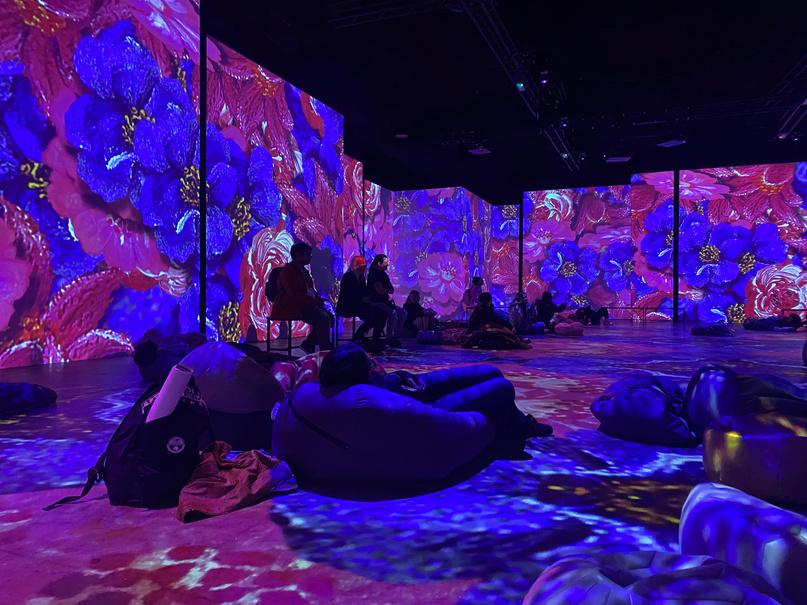
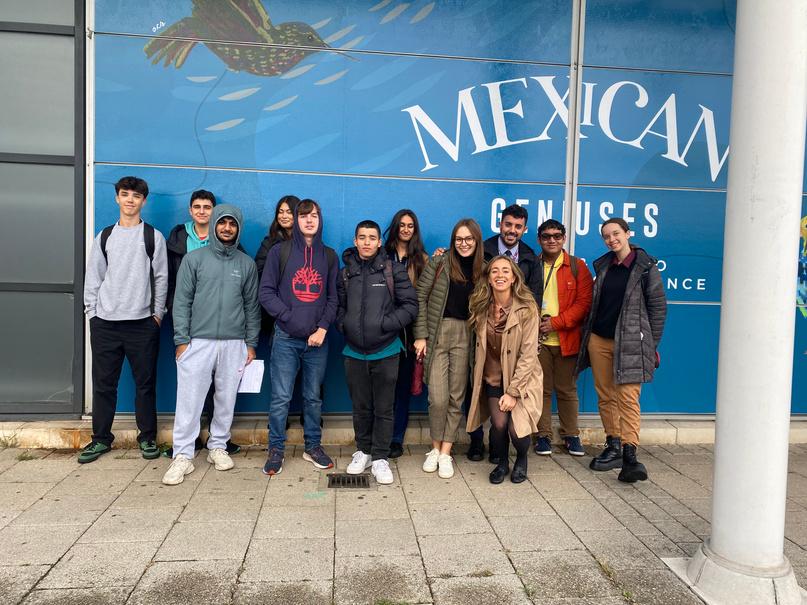
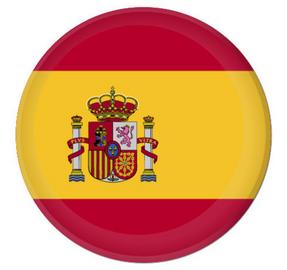
On the 27th of September UCS invited the Transitus & Sixth Form to a Frida Kahlo & Diego de Riviera immersive experience at Surrey Quays, London Walking through the first section of the exhibition, my peers and I were given a fascinating insight into her famous husband, Diego, who was well known in the art scene before meeting his wife In addition, their paintings were brought to life with detailed information everywhere, in combination with historical items from Mexican culture and Diego’s life such as the gramophone. The second room was the centrepiece of the exhibition The room lights up as Frida’s art flows around the walls, voices taking on the roles of Frida and Diego explore excerpts of Frida's diary
We found this particularly interesting watching the recreations talk as it really brings you further into the experience and gives you an insight into the background of the Mexican Geniuses. As we continued through from the gallery we found more to enjoy, such as a photo stand of Frida or Diego. But the highlight of the room has to be the colouring wall. Boxes of whiteboard markers sit ready for everyone to get involved Creating an undeniably fun ending into a fascinating perspective into Mexican life, culture and art My peers and I really enjoyed our time at the experience and will be encouraging more of the school to experience this exhibition for themselves.
For everyone on the Valencia trip, the half-term hit the ground running and after a 3:30 am start on Sunday morning, we met at the strangely quiet Heathrow terminal five, ready to embark on our travels With excitement replacing our tiredness, we flew-off into the still-dark sky and watched as the sunrise appeared over the clouds…
When we arrived in Valencia, we were greeted with a wave of warmth and packed-off with our hosts, and Spanishspeaking experience had begun. Immediately we had to use our Spanish to chat with our kind hosts and listen carefully as they explained all the details, and then we went off to explore.
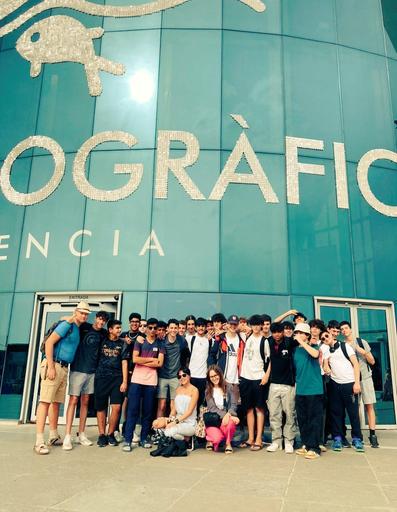
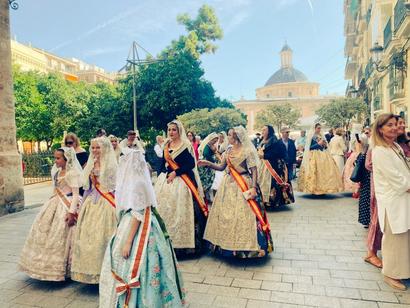
The first thing that strikes you about Valencia is the mix of old and new buildings patchworked together, with an amazing number of ancient cathedrals, towers and squares to visit - which was exactly what we did as our first after-school activity the next day. Every morning, we went to the nearby Spanish school and had lessons from 9:30 - 1:30, which were taught in Spanish and mainly focused on speaking, and a clear increase in fluency was visible by the end of the week.

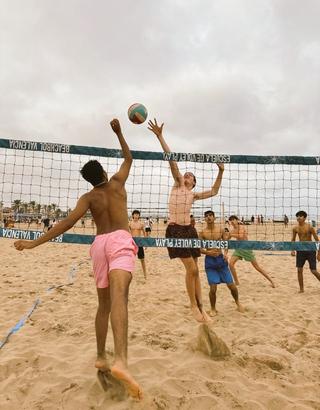
After the lessons, we had an hour to have lunch and explore, which we used to visit museums and climb towers to see incredible views of the city. Next, we had an activity planned every day, ranging from a trip to Europe's largest aquarium, to volleyball on the beach, to a paella-making class. The aquarium was my personal favourite as we got to see an incredible dolphin show, walk through a shark tunnel and even see whales! Also, the modern architecture was breathtaking.
But, after an exciting five days, we had to wave goodbye to our host families and to Valencia and return to London. However, even when we had arrived, we continued to instinctively speak in Spanish, as we had become used to doing so after being immersed in the language for so long!
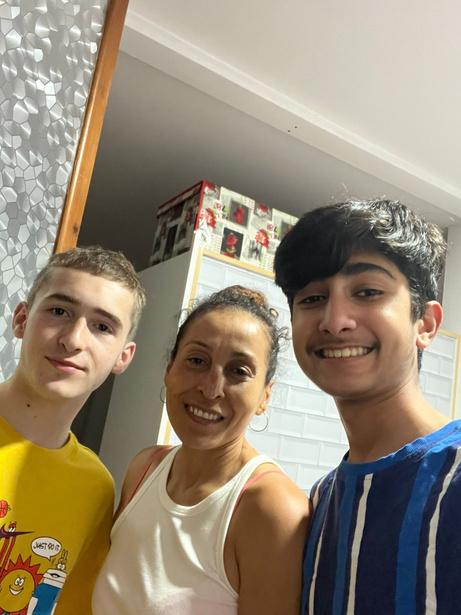
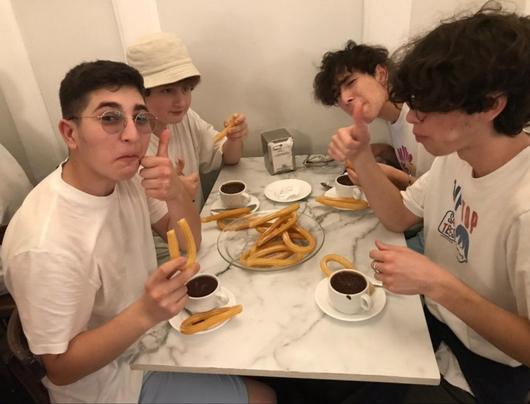

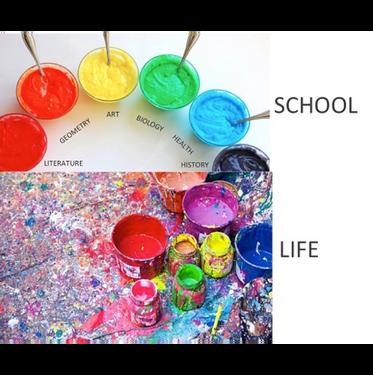

 Maruf Samad, Transitus President
Maruf Samad, Transitus President
After overcoming the challenging hurdle of lockdowns and COVID-19, the launch of the Modern Foreign Language Society, as well as many others, marks a new era for Modern Foreign Languages at UCS!
As President, I would like to welcome the upcoming Modern Foreign Languages Society to UCS! This society will aim to offer an exciting perspective on Modern Foreign Languages at UCS, as well as aiming to aid students in developing their passion for different languages, from a viewpoint outside of the classroom. The Modern Foreign Languages society will include a wide range of opportunities to offer to students regardless of their academic backgrounds (since languages are important to all fields!), such as a diverse range of fantastic speaker lectures, varying from Modern Foreign Languages, Journalism, Law, Medicine, and more! Of course, as well as gaining a fun experience and knowledge within and beyond higher education, attending the events at this society will also be very beneficial for your university applications (both UCAS and Overseas)!
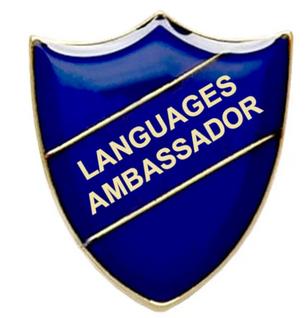 Maruf Samad, Transitus President
Maruf Samad, Transitus President
Students across Entry to Upper Remove will also benefit from the new Ambassador mentoring program initiating in October 2022, offered by linguists volunteering from across Transitus and Sixth! With this new initiative, we aim to allow budding linguists at UCS to obtain the support they need to aim for (and obtain) a top grade in their Modern Foreign Language subjects. As an Ambassador, I am currently undertaking the role of mentoring two GCSE students from the Upper Remove, and I hope that I will be able to provide them with a great experience to enjoy the language, and also help them obtain top grades through efficient methods which I used as a past candidate for GCSE Spanish.
We will also aim, through the Modern Foreign Languages Society, to also offer a special Modern Foreign Languages Networking Event to students! The aim of this is to allow students to make new connections with graduates and people from a variety of fields (eg, Law) who use modern languages on a daily basis in their work environment. Indeed, to make useful connections, languages construct a high significance in this, and hence events like these will be aimed to be promoted through our Modern Language Society (as well as through the Modern Languages department)!
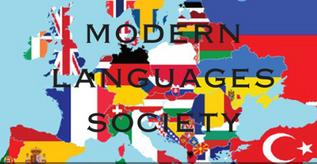 Maruf Samad, Transitus President
Maruf Samad, Transitus President
I am aspiring to start a podcast series for Modern Foreign Languages at UCS, where multiple speakers and students will have the opportunity to have a wide variety of extremely useful discussions (eg, an Economics A-Level student who studies German could prepare questions in German for a podcast with a Financial Risk Analyst who works in a German firm).

UCS is now excited to offer a new cycle of the Modern Foreign Languages Society Talks. Do come along to the Science Lecture Theatre on Mondays from 13:15 to 14:00! From intriguing talks to exclusive events, the society will provide golden opportunities which you will definitely not want to miss!! Whether you want to learn about the usage of specific languages in different fields (such as Medicine, Finance, or Journalism), obtain entrepreneurial assets in languages, or give an amazing edge to your university applications (UCAS, Common App, etc), you are extremely welcome to come along and take advantage of these once-in-a-lifetime events!
23 January 2023
See you there!
Maruf - President and Co-Founder
Monday - Danny Wittenberg Old Gower and BBC reporter talks Cambridge MML, Journalism and LanguagesLanguages are an important part our life. They represent fwhoweareandwherewecome rom. To be able to speak ailanguagedifferenttoyourown fssomethingamazingandskill orlife!-JaredMorris

Manymorejobopportunitieswill beavailaletoyouifyouarefluent in another language. Although it's not all about gaining money as it's actually quite an interesting skill just o learn as a hobby. In addition there is also a lot of history involved when learning a language and how different countries were colonised and why a certain country speaks a certain language.CharlieHarris
IhaveafewopinionsonthisasI am Japanese. I think that languages made people unique.IntheUKtherearealot of people from different countrieslivinginacommunity VincentDavies
Learning languages is importantformultiplereasons, but a very important reason is communication. Languages couldalsobetheexactskillyou need to get promoted or find a good job young. Diversity is a very important part of the modern world and it is important to have a good connection with people from diversecultures Alex Mazzuca
If you want a job in another country and there are a dozenotherpeoplewhowantthatjob,allatthesame level,youmightgetit! CharlieWade
If all the world spoke English there would be no cultural diversity or difference and none of the things that are associated with this, such as cuisine which is Canamazingwaytoexperienceothercultures onallCawley
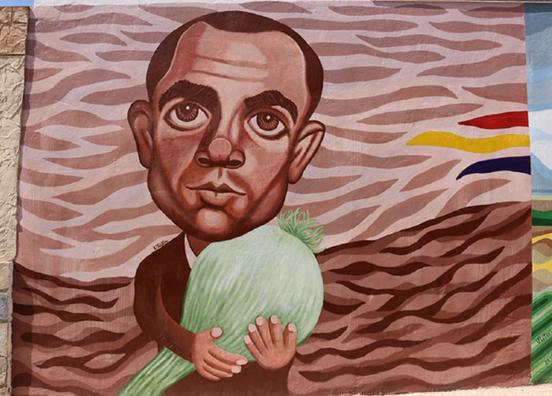
Amongst the alumni of University College School are counted many illustrious and successful Old Gowers, and in the context of literature, there is none of greater standing than the English poet and writer, Stephen Spender. His clear fondness for his years here are clear when he termed UCS ‘that gentlest of schools’ . Through our participation in the Queen’s College Oxford Anthea Bell Translation Prize, we were contacted by the Stephen Spender Trust and invited to take part in the Festival of World Literature. Spender, whose mother was of German Jewish heritage, lived in Vienna, Paris and travelled to Spain during the Spanish Civil War and translated poetry by Miguel Hernández and plays by Bertolt Brecht into English.
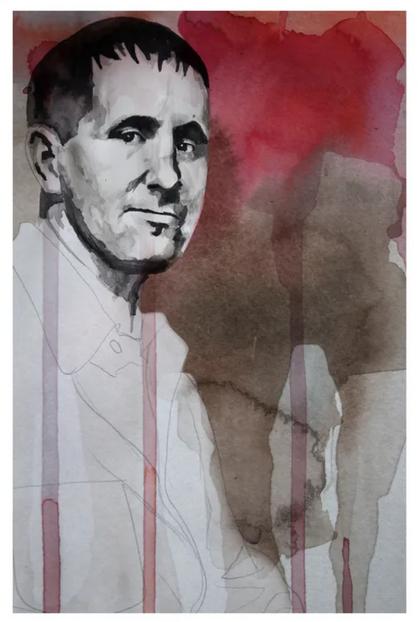
In September all five Entry form groups participated in individual sessions as a form with professional translators who introduced them not only to the beauty of words in English and in other languages, but also to the techniques of good translation, reading for gist and literal translation. Pupils were encouraged to explore expression in French through the composition of art work and a comic strip narrative, with many pupils sharing their knowledge of other languages - Hebrew, Italian and Greek to name just a few.

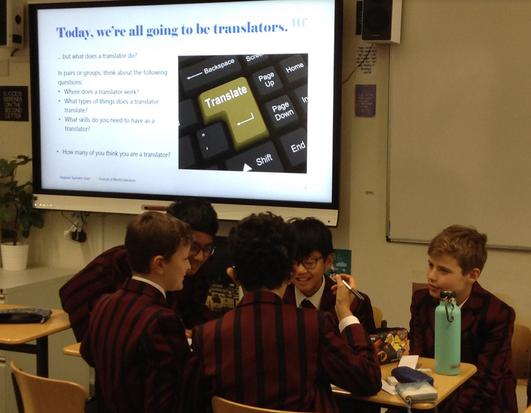
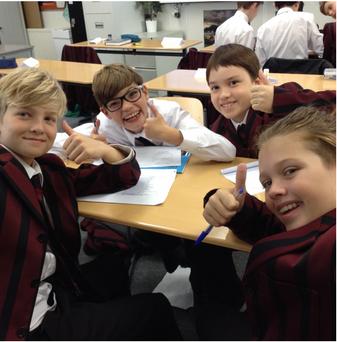
 Thomas Hall, Entry
Thomas Hall, Entry
The only word to describe the French translation workshop is incredible. This workshop included a plethora of different tips and skills to help you learn not just French but many other languages as well. We began by meeting our instructor and guide for the workshop Coralie and she slowly became acquainted with us as she went around and asked for each person's name, their names origins and meaning and their favourite word.
By teaching us different skills such as making connections between two words from two different languages such as Spanish and Italian as they both have Latin roots. We were tasked to complete a range of different translations in both a literal translation which is when you translate word from word negating the fact to make it sound grammatically correct and afterwards changing it to be more grammatically correct. Finally we finish it off by creating a comic in multiple languages that different students in the class can speak ranging from Greek to French to Japanese. This was an informative experience and it definitely gave learning languages a new and more innovative lens.
Thomas Hall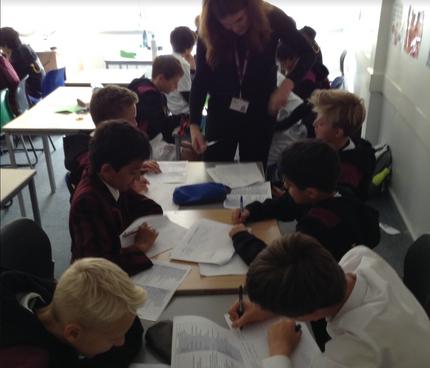
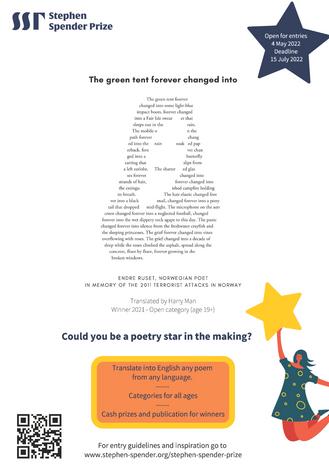 Joshua Batterham, Entry
Joshua Batterham, Entry
In this workshop, we translated French comic books into a literal translation and a grammatically correct translation After that, we excitedly made our own comic books and presented them to the class. My favourite activity was drawing up comic book strips using coloured pencils because it allowed me to be curious and creative. I was also able to create original designs which inspire me and my fellow classmates. I wrote my comic strip about a video call that ended up being an absolute disaster! It was an utter catastrophy!
This exercise gave me an insight into translation because I had to use my prior knowledge with French vocabulary in order to change it into the English language. Next, we had to make grammatical sense of what we translated which was the most challenging aspect of this workshop. All in all, this workshop was truly riveting as it challenged me to remember key words stemming from previous lessons and further consolidated my learning with the French language.
Joshua Batterham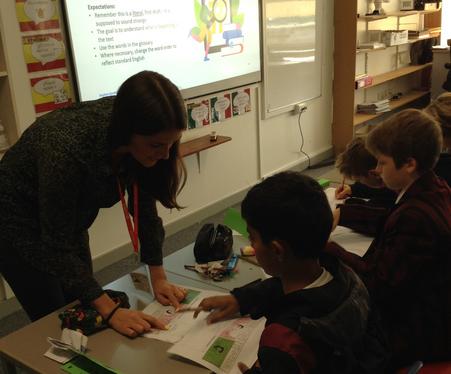
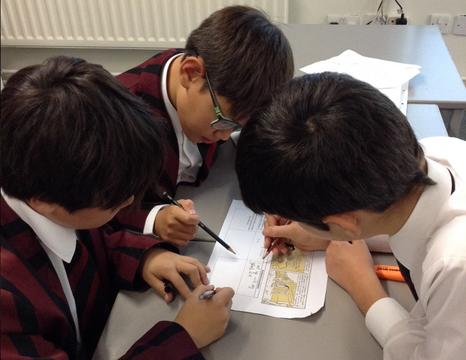
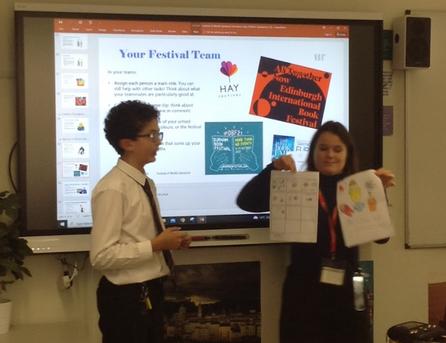
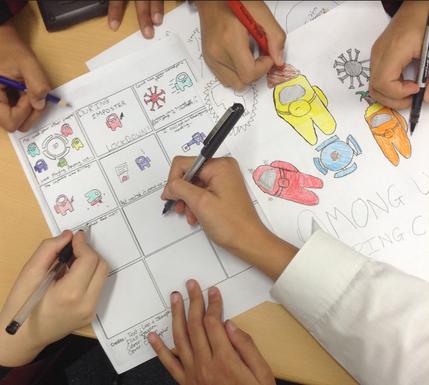

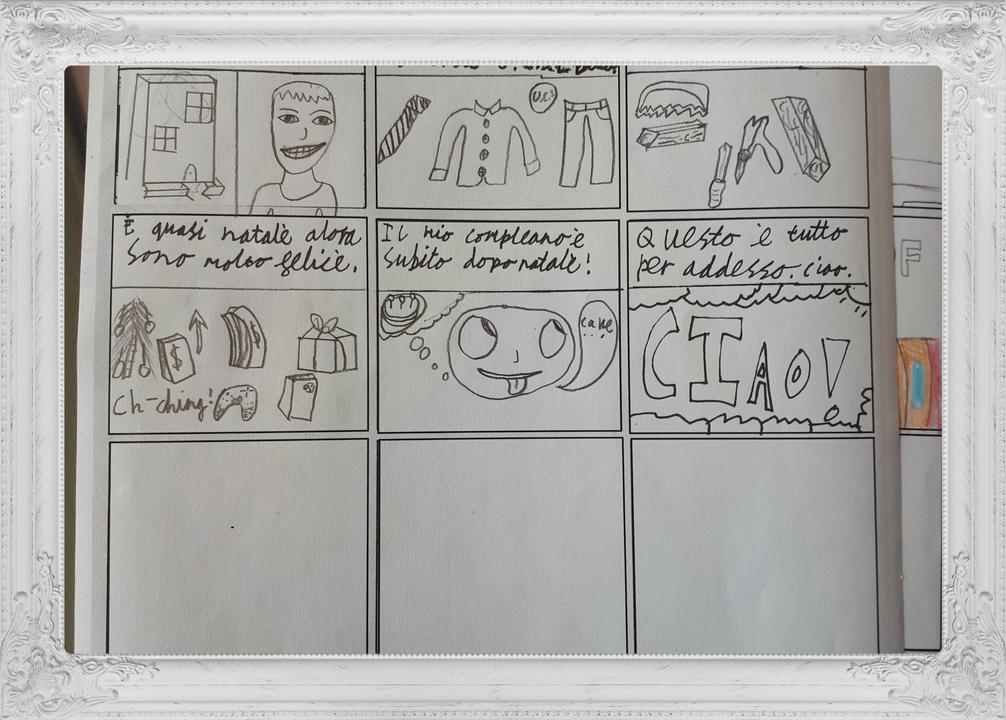
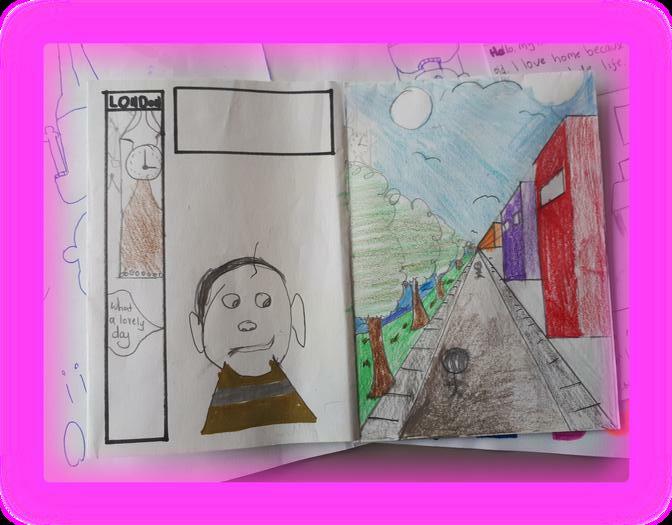
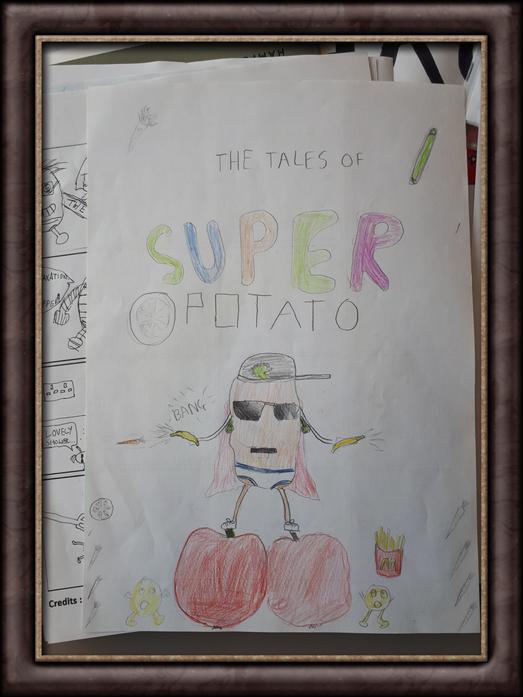


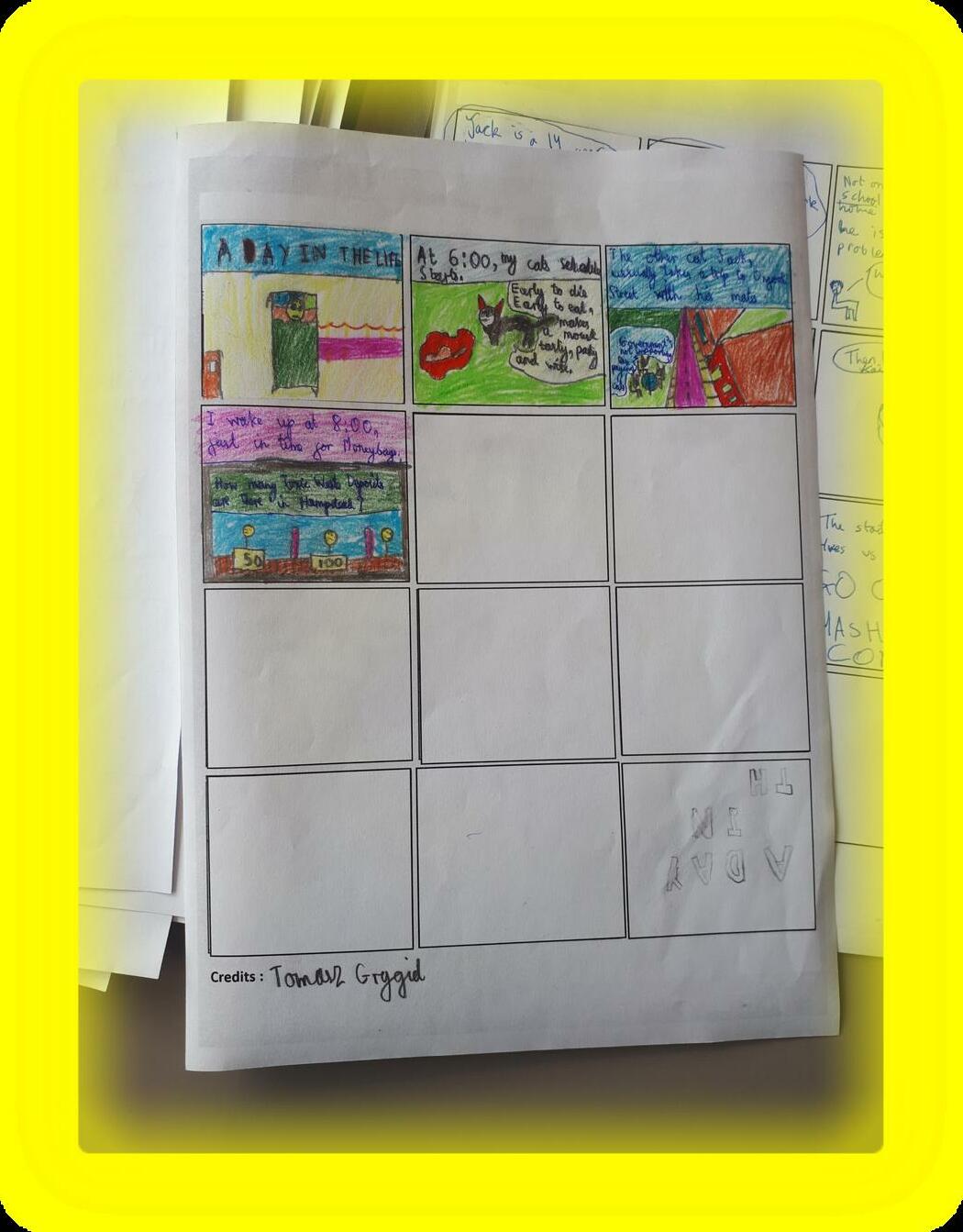
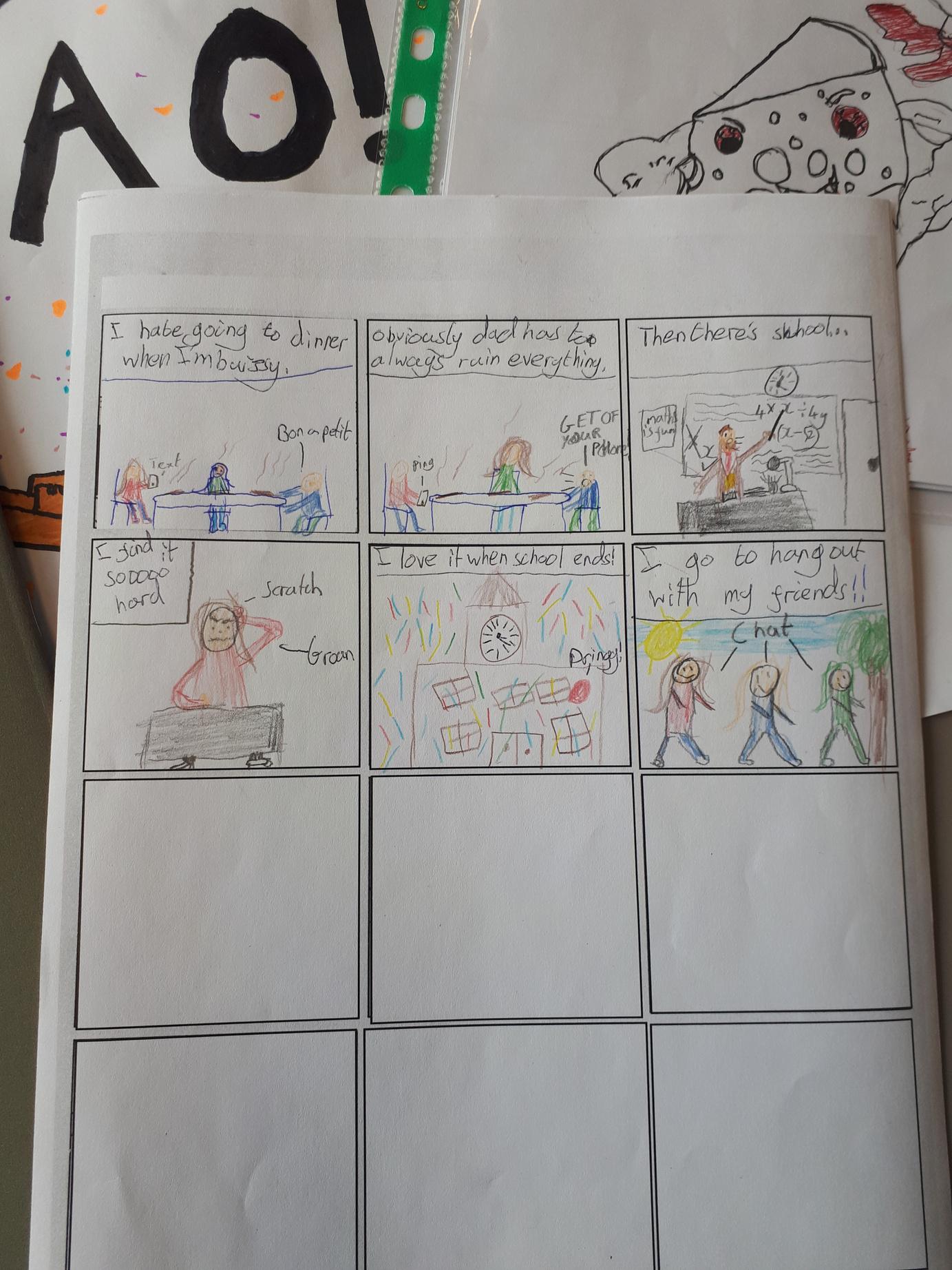
EBAN pupils Adam and Theo took the opportunity to find out more about translation and interviewed our professional translator from the Stephen Spender Trust, Coralie Bastiaens
Adam and Theo: What is your favourite language?
Coralie: Definitely Italian! It has a great musicality and it is the language of opera My mother-tongue is French, but as a child I was completely obsessed with English. I was fascinated by the language and I always took the opportunity to listen to English films - in fact, it is still my favourite language to use.
Adam and Theo: How did you become interested in languages?
Coralie: When I was a child, we moved around a lot and lived in different countries, so I didn't want to feel out of place and developed an aptitude to pick up different expressions quickly to fit in
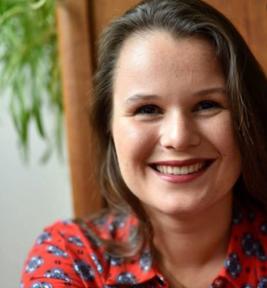
Adam and Theo: What is your favourite word?
Coralie: I have three! Scrumptious - papillon - onomatopoeia.
Adam and Theo: What are your top tips for excellent translation?
Coralie: Three key things to bear in mind here: MEANING EFFECT & CONTEXT. Who is the audience? What is the text? Always be aware of the MAGICAL effect of words! Make the text as magical as possible, with all the original effects kept in place - a tricky task - but always try!
It felt like we had been duped when Ms Wu said we were going on a trip to ‘China… Town’. You could feel the room go from something like elation to that feeling that you get when it’s cold and you haven’t slept enough. But when we took the tube on Tuesday 8th November there was excitement in the group. We got to the British museum, that great Greek temple, those vast white columns - there were puddles to avoid - the world was a little watery. And met our tour guide: a lovely Chinese lady, fully prepared to educate into us the history of jade, the dynasties of ancient China, the traditional Chinese house and temple design, and anything else that she could fit into the hour session; she was equipped with headsets, so that afterwards our right ears all rung with China. The China department was a wonder: there were hallways of tiny ornate green teapots made by small hands more intricate than a machine. There were walls covered with bronze swords that must have chopped off many a head in their time. There was even a room kept dark to protect an ancient scroll holding the secret to everlasting life….well not really but it was still unbelievable to think that someone had drawn that bear, that mountain, that facial expression, so clearly, so humorously - how? Too soon we had bid farewell to our tour guide, but we eventually made our way to a small restaurant in Chinatown, Imperial Palace, that had a shopfront like some sort of smelly British pub, complete with neon sign. But as soon as we stepped through there were statues of lions guarding the door, red everywhere, a bridge over a stream with a coy pond - great orange fish beneath our feet?! And then a huge carpeted room with round tables and lots of people talking quietly. We ordered dim sum and ate everything we could. And was it delicious. If you go make sure to get the pork dumplings with soup in them(!) They are very hot you have been warned. To top it all off, we got bubble tea from the best place I’ve ever tried. There was even a contraption to tell your fortune… and I had ‘bad things are in store for your future’, so maybe that lowers its prestige a little Altogether a fabulous trip, organised by Ms Wu and Ms Maggioni, that combined culture with delicious food and a great time.


I’m Carlo, a former Mandarin student.
I was challenged by Miss Maggioni last year to learn the most frighteningly complicated character in the language: Biang.

Being me, I accepted the challenge with excitement, despite already dreading the learning process. It wasn’t like learning other characters, where you could write it as a whole- I had to treat it like learning multiple different characters stuck together, which I have to say was quite unusual for me.
After 2 hours or so, give or take a couple of breaks, I had finally memorised it to perfection. Some of my fellow Mandarin students couldn’t believe it (I couldn’t believe it myself), but I drew it proudly on the board. I had done it; I had learnt the most complicated character with 56 strokes on the paper to draw it a single time. I soon learnt that the popularity of this character didn’t end there, however- it was actually a type of Chinese noodle dish.
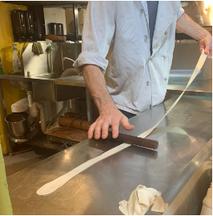

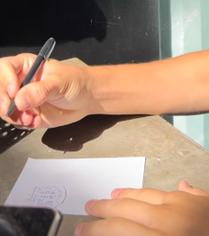
After drawing it out for my sister, she declared she would take me to a particular restaurant stand in Norway where they served such noodles. Fast-forward over half a year later, and I was no longer taking Mandarin. As sad as I was to not be continuing it, I held on to my knowledge of this character with pridesuch as one might hold a badge. It was my personal token of my commitment to the language.
I was finally in Norway, with my sister leading me to the restaurant stand in question. It was a while since I had interacted with Mandarin- I could still remember the main characters but many others were in the grey. We went over to the stand (I was excited- I did, after all, want to try the noodle I had gone through so much pain to learn), and I asked for some BiangBiang noodles The server said I would be given a free portion if I could write the character in front of him. It had been a good few months since I had last written it, and I was caught off-guard, but I took the opportunity and made an attempt to write it in front of him. And with enough effort, I finally wrote the whole thing out, stroke after stroke, to his approval. I was really surprised I had remembered the entire thing- I figured it was my experience learning this magnificent language, and the significance of this character to my language learning journey, that kept this special character alive for me
Mandarin Carlo Von Der Tann Remove
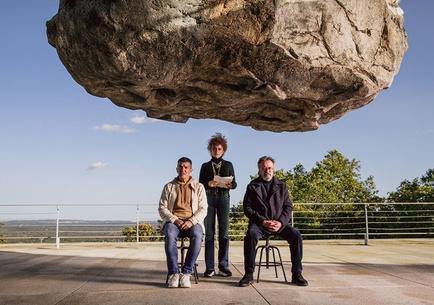 William Abbott
Modern Languages Ambassador
William Abbott
Modern Languages Ambassador
Competencia Oficial, starring Penélope Cruz, Antonio Banderas and Oscar Martínez is a comedy film surrounding the production of a movie at the behest of a rich philanthropist. Whilst labelled as a comedy, the film has some heavier, thought-provoking moments in stark contrast to the satirical and humorous nature throughout the majority of the film. The film attacks some key topics in a very subtle way: the theme of feminism is present in undertones throughout the film in Penélope Cruz’s domineering and assertive character portrayal; a message clearly illustrated through her power over her male subordinates and colleagues. Further, the film industry as a whole is targeted through a striking scene wherein Penélope Cruz destroys award after award after award in a metal cruncher. This scene has a stab at the film industry suggesting that its entire ideology is superficial and frivolous. The warring egos of Oscar Martínez’s and Antonio Banderas’ characters allude to the pretentiousness and obnoxiousness ever present in many famous actors who believe that they are above societal norms
The character played by Antonio Banderas accentuates this point through his abundance of awards and honours and wealth leading him to believe this. The character’s supposition is that due to his higher social standing, wealth and fame, he is above the rules of regular society; this point is expertly driven home through the murder of his counterpart in the final scenes. On the contrary Oscar Martinez’s character is of the opinion that his work as an actor is beyond the comprehension and consequently, the enjoyment, of the average watcher, of the average member of society. His illusory superiority is conveyed on multiple occasions throughout the film and is presented as his hamartia as it ultimately leads to his death: his fellow actor hears him spouting to a member of staff about how his work is simply better than his colleague’s and accidentally kills him. Overall the film attacks and takes a stab at the film industry successfully and deftly dismantling it with underlying themes of feminism also at the forefront of the production, whilst maintaining a gripping equilibrium between satirical humour and compassionate and solemn scenes.
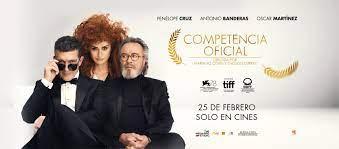
This Autumn, while Frognal was glowing with candlelit pumpkins and trick or treaters snaked their way around their neighbourhoods, Lower Remove Spanish pupils learned about a coinciding celebration on the other side of the world.
El día de muertos or Day of the Dead, is arguably the most important event in the Mexican calendar Families prepare altars, full of photos, candles and favourite items of their deceased loved ones to guide their souls back to the living world to be reunited again. A rich blend of Mesoamerican ritual, European religion and Spanish culture, the holiday is celebrated each year from October 31 - November 2.
The streets of Mexican pueblos and cities are lined with colourful bunting and marigolds and impressive parades of festival goers paint their faces with skulls and dress themselves in skeletal costumes.
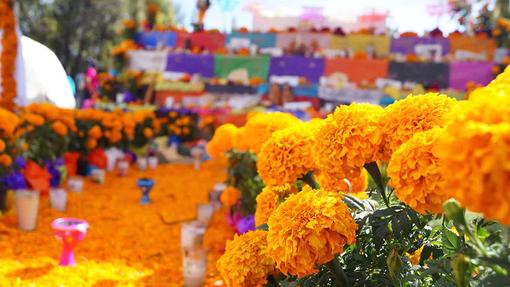
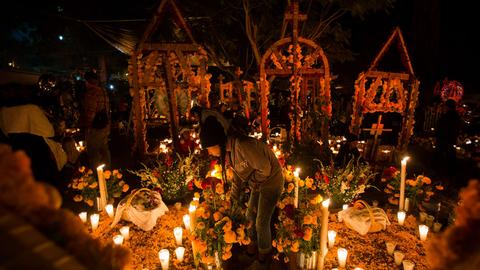
Perhaps the most striking aspect of the celebration is the Mexican attitude towards death. In stark contrast to the sombre All Saints' Day in Spain, el día de muertos is an occasion for remembering and celebrating those who have passed on from this world, while at the same time portraying death in a more positive light, as a natural part of the human experience.
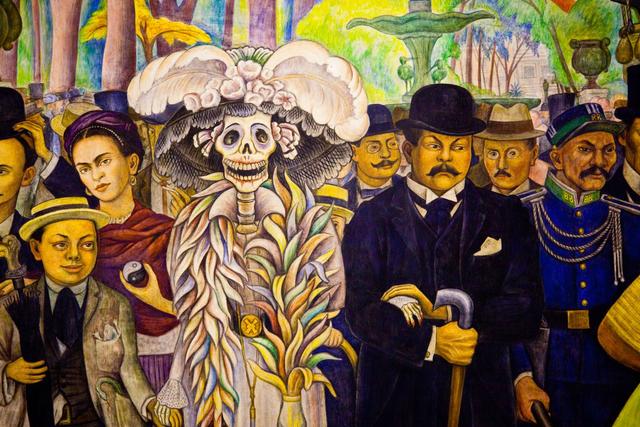
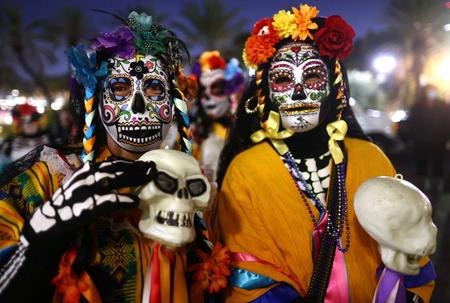
Writing rhyming poems called calaveras literarias mocking epitaphs for the dead or satire targeting the living has become a proud tradition. They “allow poets or artists the opportunity to take a crack — it’s almost like you’re roasting someone,” said Eduardo Diaz, director of the Smithsonian Latino Center in Washington, D.C.
After gathering some key vocabulary through animated videos, and studying and translating some calaveras, the Lower Remove got to work on some calaveritas of their own. Here are some of the most impressive!
¡Es el día de muertos!
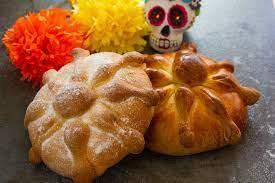
Las naranjas calendulas y las calaveras nos rodean Hay muchos conciertos en el cementerio Los muertos y los esqueletos están jugando Ancestros velando por sus descendientes y otros embrujando a la gente en los pueblos.
El día de los muertos está cerca Vienen los muertos: ¡Haz el pan Pon los altares Usa colores brillantes Cuidado con los esqueletos!
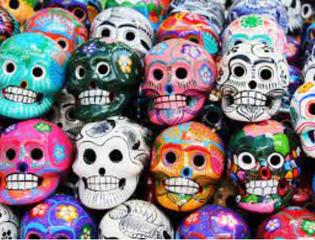
Aquí vienen los esqueletos Como niños
Juegan, bailan, muestran su respecto Buscaban vecinos Sin embargo la gente Tira manzanas Todos están felices
Doy regalos al altar y los ancestros estarán felices y vendrán. Colores, comida, baile, sonidos hay de todo.
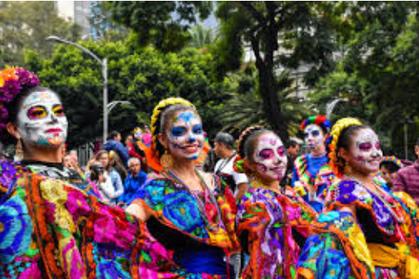
Vienen corriendo Yo pasao regalos y flores Los desfiles son bellos La comida es genial Calveras y cruz Disfraz y maquillaje
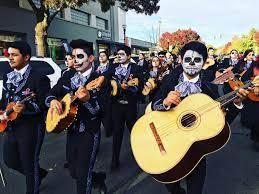
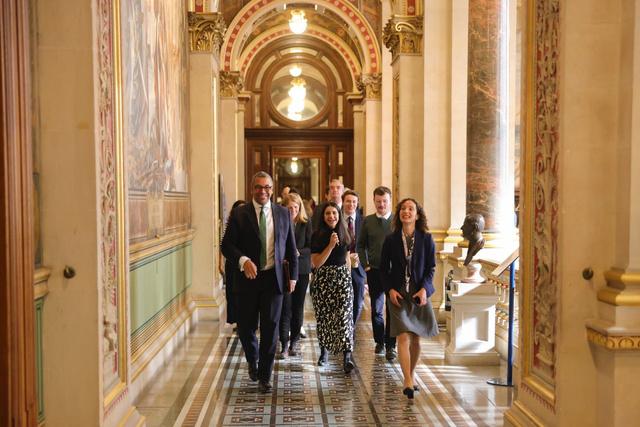 Tyson interviews Kiki Private Assistant to the Foreign Secretary
Tyson interviews Kiki Private Assistant to the Foreign Secretary
Can you tell us a little about your current role and your previous work experience?
I’ve been working as a Civil Servant specialising in Foreign Affairs since 2019. My current role is in the Foreign, Commonwealth and Development Office (FCDO) as Assistant Private Secretary to the Foreign Secretary. My core responsibility is to act as a link between the Foreign Secretary and civil servants (in London) or diplomats (in British Embassies overseas) on key foreign policy issues – at the moment that is very much dominated by the war in Ukraine I specialise in the Foreign Secretary’s Latin America portfolio. Before this role, I spent last year working in 10 Downing Street in the Prime Minister’s Foreign Affairs team which was fascinating!

 Tyson interviews Kiki Private Assistant to the Foreign Secretary
Tyson interviews Kiki Private Assistant to the Foreign Secretary
Where did you go to university and which degree did you undertake? Do you think it contributed to you landing this role?
I went to Newcastle University and studied Modern Languages – French and Spanish. The highlight was definitely my third year abroad! I spent half the year teaching in Peru and the other half in France. I think the year abroad is what makes a languages degree so special and unique – it gave me so many transferable skills for a future career compared to friends doing other ‘regular’ degrees. I would not have secured my role in the Foreign Office without doing a languages degree
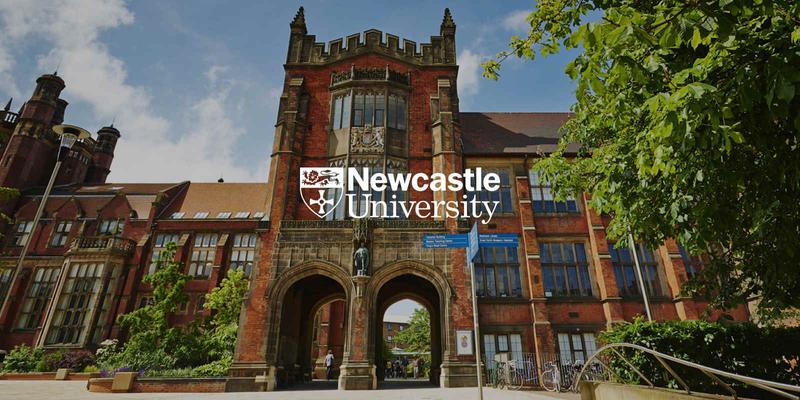
Could you tell us a little more about your experiences abroad in Perú and Colombia?
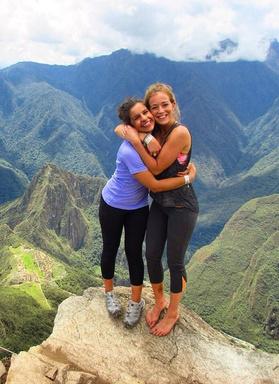
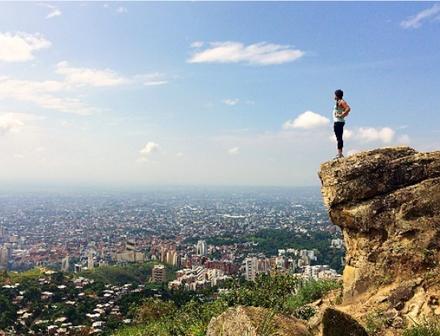

Even though my time in Perú was short – it inspired me and my love for Latin America. I knew I wanted to return to Latin America. In my final year at university, I applied to a British Council Teaching Assistant role in Colombia and was lucky enough to be accepted. I moved there straight after my graduation, initially for one year, but loved it so much I stayed for two! Living and working there meant I solidified my Spanish skills and managed to have an adventure at the same time.
My current and previous roles wouldn’t have been possible without studying languages. As policy lead on the Foreign Secretary’s Latin America portfolio I get to practise my Spanish when communicating with diplomats overseas and have a deeper understanding of issues in the region
How does your knowledge of Spanish help you in your role?
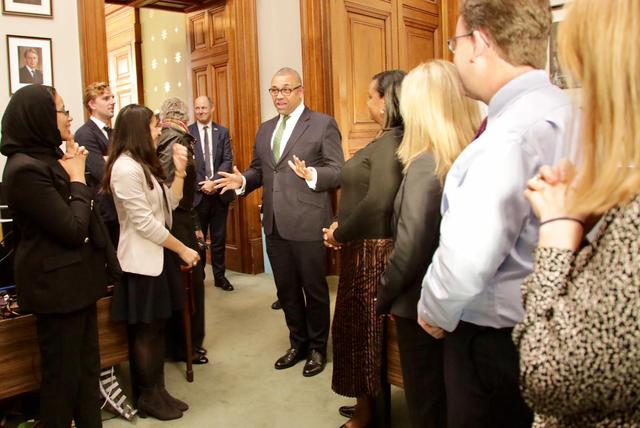
Have you travelled much with your current role / do you have any work trips on the horizon?
I haven’t travelled with the Foreign Secretary yet, but we’re hoping to organise a visit to Brazil in the coming months which I’m looking forward to! In my previous role, I went to represent the UK at the Pacific Alliance Summit in Perú , and saw some of the fantastic work our British Embassy in Lima is doing.
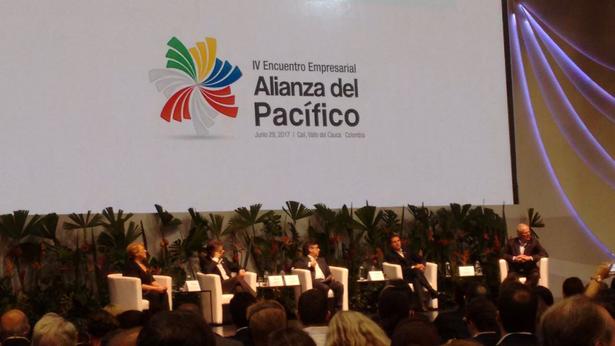
What might be next for you in your career?
Hopefully a diplomatic role overseas! Two thirds of FCDO workforce are actually diplomats working in our hundreds of British Embassies around the world This means I would live abroad and work in an Embassy promoting UK values, trade, security and more! For diplomatic postings, languages are essential – all the interactions we have with our host governments must be conducted in their own language.

Duolingo is a free language learning app, used by over 50 million people worldwide! While it has been around for over a decade, I feel that its popularity has really taken off over lockdown, with many people looking to fill their time productively!

I have used Duolingo for about 2 years, and at first, I was only interested in studying the languages that I studied at school (which was only French at the time). However, now, I have done some lessons in 10 different languages on Duolingo, Spanish, French, Portuguese, Japanese, Italian, Ukrainian, Swahili, Hindi, Turkish and even Hawaiian! In my opinion and experiences, I would say that Duolingo (and online language learning in general) certainly has its limits.
For example, I thought that it enhanced my French and Spanish learning a lot, as I already had an existing knowledge of these languages, through school lessons. Having said that, I think that the languages such as Hindi, Swahili and Ukrainian are very enigmatic, especially with a lack of previous experience and knowledge in the languages. This is also exacerbated by the fact that these languages all have different alphabets!
Charlie Rollo- RemoveI think that Duolingo is a brilliant app, but I think there are a couple of things that I would change! For example, (this is very fastidious!) I think it would be nice to know exactly what part of the world this language is from (such as Brazilian Portuguese or European Portuguese). I was more interested in learning European Portuguese, so I was a little frustrated that they only offered Brazilian Portuguese, as I was keen on learning European expressions and pronunciation. Another small thing would be that, I think the courses are slightly too vocabheavy, and I would like a bit more Grammar here and there!
Overall, I would have to say that - even though Duolingo is brilliant, real-life language learning cannot be beaten! I think it is far easier to pick up grammar and pronunciation in real life. Although I must say that combining both real-life and online language learning, creates a far better understanding of the language.
 Charlie Rollo- Remove
Charlie Rollo- Remove


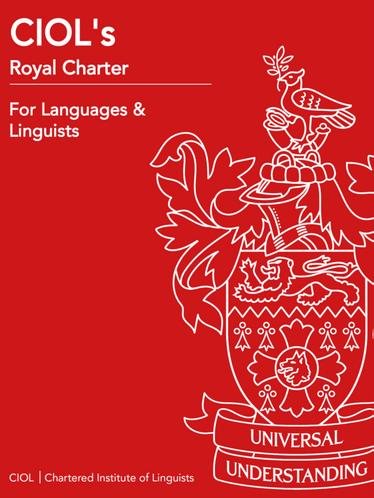


 Chartered Institute of Linguists (CIOL)
Chartered Institute of Linguists (CIOL)




 Chartered Institute of Linguists (CIOL)
Chartered Institute of Linguists (CIOL)

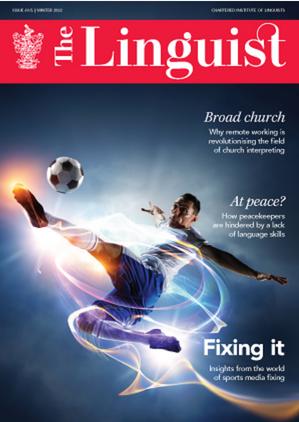


 Chartered Institute of Linguists (CIOL)
Chartered Institute of Linguists (CIOL)
You have most likely heard from many people that learning another language is important, whether it is for future jobs, stimulating your brain, or just looking clever in front of your friends, learning another language is no doubt something that every person should at least try to do. With the sheer number of countries in the world, learning a second language may seem pointless, what’s the point of learning another language if there are still several countries whose languages you still don’t know?


While some languages are extremely widely spoken, far more than in just two or three countries. If you were to learn Spanish and French then congratulations, you would be able to speak in almost all of South America and a large chunk of Africa, and the best part: when you learn one foreign language, it is most times much easier to learn another!

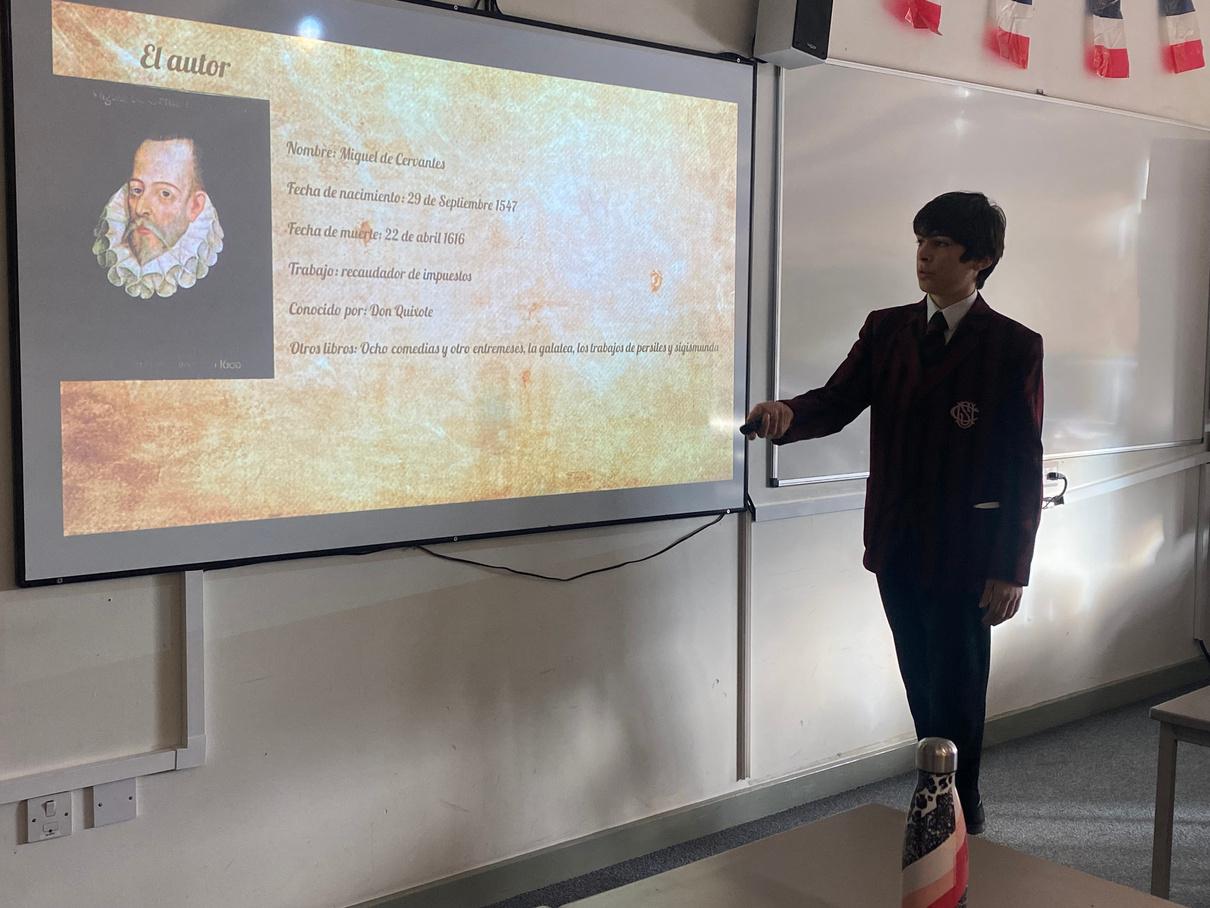
But you can only become proficient in the language through practice, especially with speaking and pronunciation and it is here that the Strictly Speaking Challenge helps. I entered the Strictly Speaking challenge a few months ago, and I can say that it has helped me a lot with my Spanish, from pronouncing the words to confidence in saying them. The challenge has two rounds, the first round has the entire Spanish year group participating, in which the teachers each select a text in Spanish that they particularly like, and then the students are allowed to choose one, learn it by heart, and then recite it in front of their class a few weeks later. Don't worry, these texts are not very long, about 90 words at most and a lot of them have very interesting stories about how they were written and who wrote them, for example I chose an extract from, The Motorcycle Diaries, Che Guevera’s personal memoir who had an interesting life to say the least.

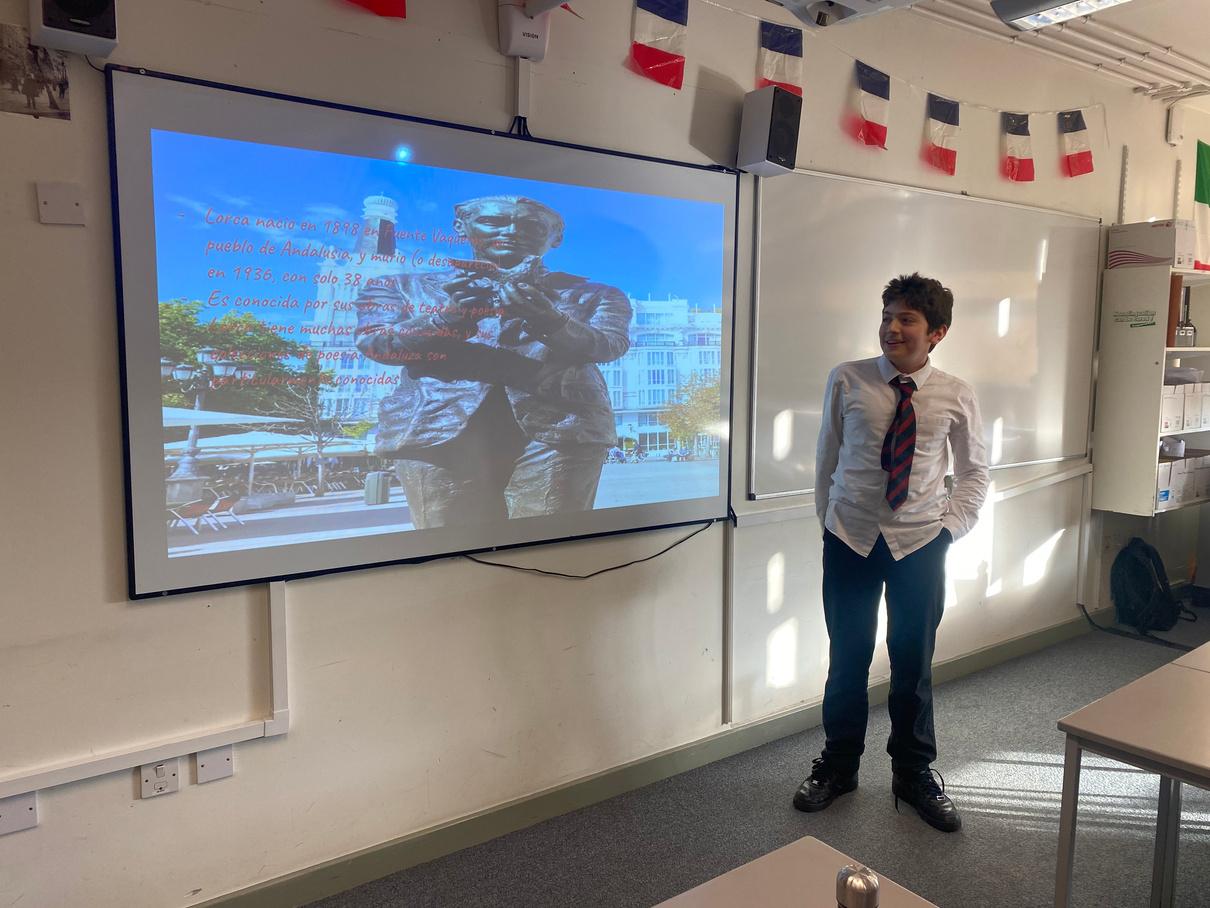
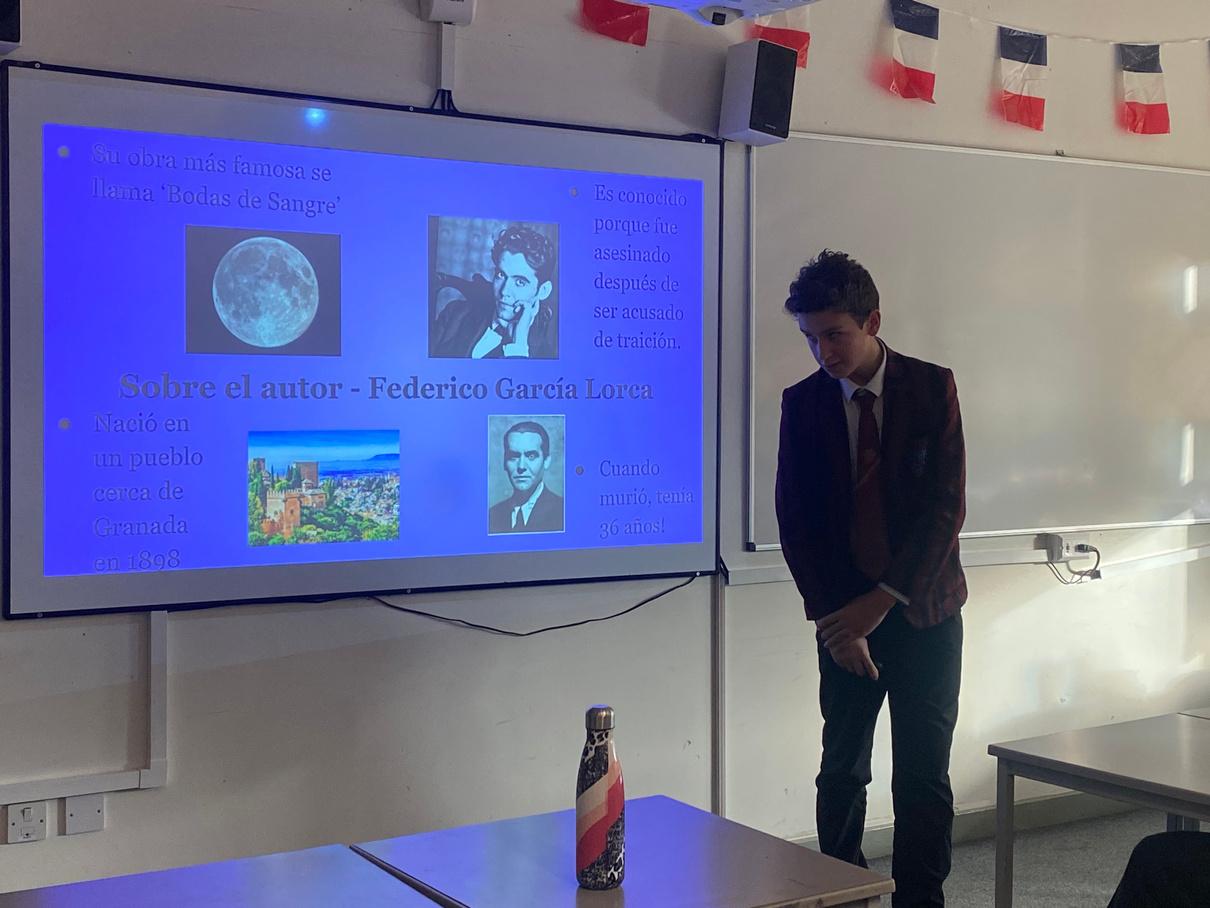


Learning the extract can be very challenging, it certainly was for me, but there are some techniques that I thought really helped. The most effective one by far was to recite the first sentence three times, then the second sentence three times, then the first and second sentences together three times, then the third sentence three times, then all of them together three times, and continue to add one sentence until you reach the end. When I did this I was very surprised that I reached the end as fast as I did and from that point on, it was just a question of pronunciation, which the model recordings helped with a lot. Then comes the test day. Students are marked on accuracy, pronunciation, intonation, clarity and expressiveness, each one is out of five to give a total mark of 25.


After the first round comes the final, in which the top two students in every class compete against each other. This round is harder as you know have to choose your own extract and present a presentation about it and its author. I find that it is easier to choose an extract if you like a certain theme, for example if you like history, you could do an extract from a Spanish history book, that is what I did in any case. The Strictly Speaking challenge is a fun and unique way to increase your progress in a foreign language and I encourage anyone who is interested to find out more about it in the Modern Languages Department.
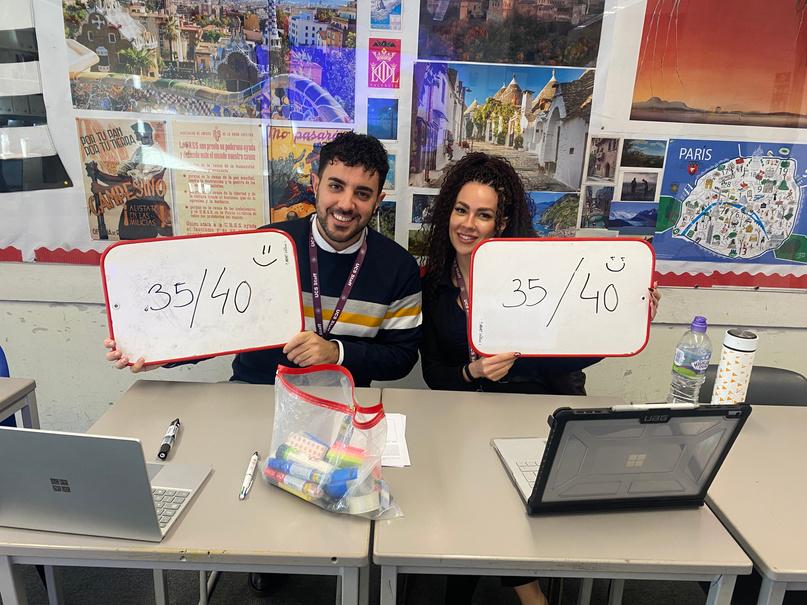

 Hadrien
Hadrien
.

«Mirábamos el mar inmenso, lleno de reflejos verdiblancos, los dos juntos, apoyados en la borda, pero cada uno muy distante, volando en su propio avión hacia las estratosféricas regiones del ensueño. Allí comprendimos que nuestra vocación, nuestra verdadera vocación, era andar eternamente por los caminos y mares del mundo. Siempre curiosos; mirando todo lo que aparece ante nuestra vista Olfateando todos los rincones, pero siempre tenues, sin clavar nuestras raíces en tierra alguna, ni quedarnos a averiguar el sustratum de algo; la periferia nos basta »

We would look over the immense sea, full of white-flecked and green reflections, the two of us leaning side by side on the railing, each of us far away, flying in his own aircraft to the stratospheric regions of his own dreams. There we understood that our vocation, our true vocation, was to move for eternity along the roads and seas of the world. Always curious, looking into everything that came before our eyes, sniffing out each corner but only ever faintly-not setting down roots in any land or staying long enough to see the substratum of things the outer limits would suffice.
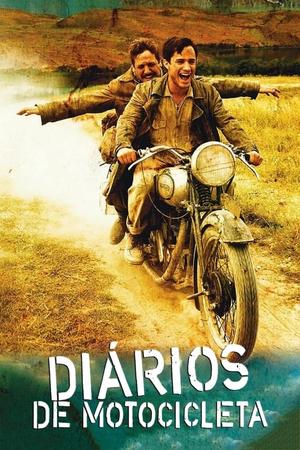 Hadrien - Remove
Hadrien - Remove
Before starting bachata, I danced hip hop since I was 14 years old My dance teacher moved to another city so I decided to start another style of dance after 6 years in Hip Hop, and she recommended me to try Cuban Salsa with a friend of hers. The truth is that I liked it a lot and that same teacher encouraged me to start with bachata and I started this wonderful dance at the age of 21, so I've been dancing this style for 9 years and now I teach bachata as a hobby.


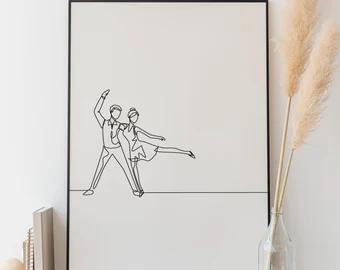
I have always liked teaching in general so I enjoy teaching something I am passionate about.
I have to admit that it is a bit difficult and you have to be patient - a quality inherent in me, fortunately - because although it is divided by level, corporally not everyone has the same abilities or skills. Also, it is very important to have a dynamic and enjoyable class, because many of them are tired after work or study and they are looking to have fun as much as possible.
Anna Reedie - TransitusNo doubt about it. In general, Latin dance is a great way of discovering the culture and history of the Hispanic world. Besides bachata, we can also find other styles such as Salsa, which has variations depending on the country, such as Salsa Caleña from Colombia or Cuban Salsa from Cuba, as well as Cumbia, Merengue, Chachachá, Bolero, etc.
Learning a dance is a motivation to learn the language of its music, in this case, in Latin dances it would be Spanish. Understanding the lyrics helps to better interpret the music and therefore the dance.


Many Latin dance students have learned Spanish to approach the culture and the music, and they really feel more self-confident dancing because they are able to represent, interpret the music and, of course, sing the songs - they put their heart and soul into the dance- therefore they can enjoy it more

 Anna Reedie Transitus
Anna Reedie Transitus
I think there are many hilarious moments teaching bachata, but I will tell one particular anecdote.
One day during the whole class, which is 1 hour, I kept repeating "belt your knees," "don't belt your elbow," etc.
And I saw people looking at me strangely but nobody said anything. Until at the end of the class one Spanish student told me: "I think you meant, "bend" because "belt" means "cinturón"

I have never done any bachata performances I have recorded videos or done demos after classes, but it requires a lot of time commitment so I have never been able to perform However, when I danced Hip Hop I did perform in front of over a thousand people.
I don't think it has one particular standout moment, but several. One of my favorite aspects of teaching bachata that I can emphasize is how it improves people's moods and confidence.
Dance is one of the best therapies, if not the best, it helps to improve depression and stress by regulating serotonin and dopamine levels in the body.

It is a social dance, so you not only learn about the culture, history, and language, but you also meet people and build new relationships with people of different ages and cultures but with the same "language" - dance.
 Anna Reedie
Anna Reedie
Are you a UCS parent, Old Gower, pupil or teacher with an exciting, worthwhile or interesting career - past or present - where the study of languages are essential, relevant or recommended? Maybe you studied for a degree in Modern Languages which led to a complete different career pathway than the one you imagined! Perhaps you had to acquire a second language along the way? Any connections with film or cinema would be most welcomed!
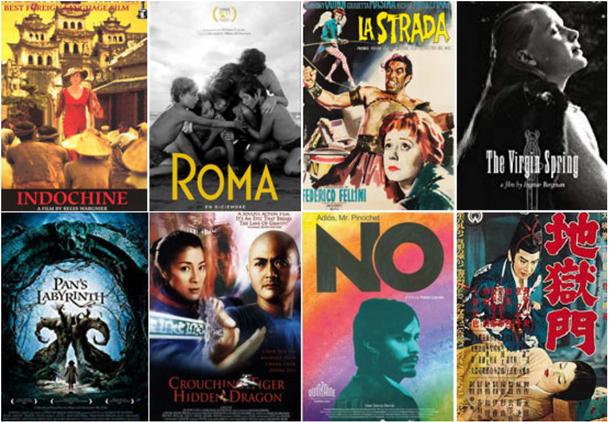
We would love to hear from you! Articles, reviews of language learning apps or interviews about living or working abroad would be most welcome.
Please email: helen.laurenson@ucs.org.uk